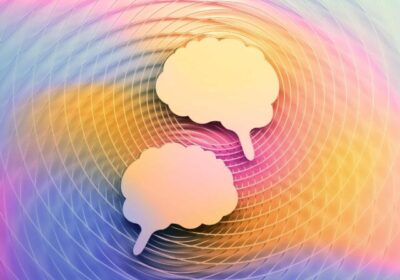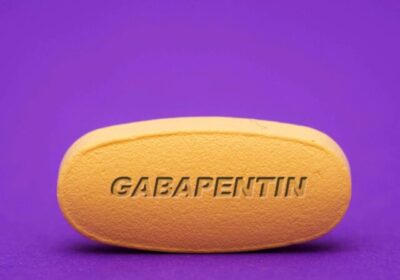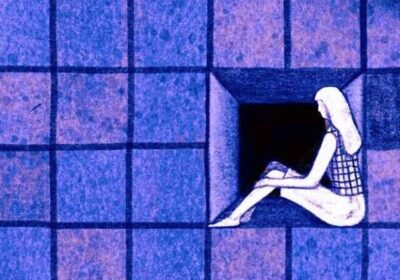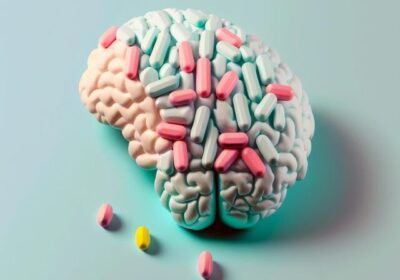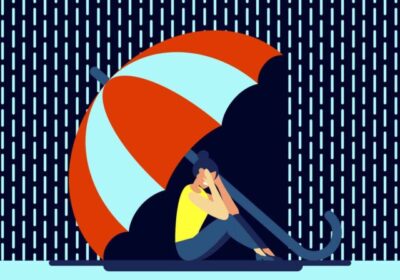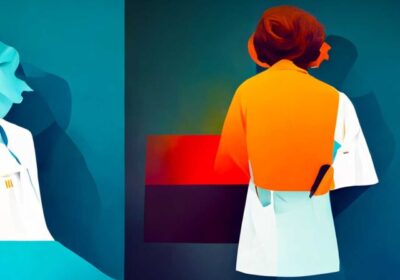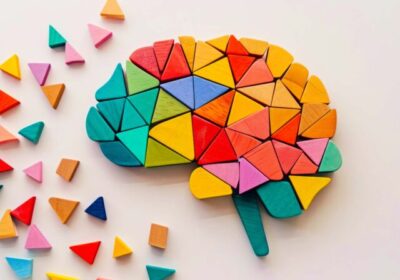OCD Treatment
TMS Treatment for OCD in Los Angeles
OCD is a condition which causes intrusive and recurring obsessions and/or compulsions that interfere with a person’s daily activities and quality of life. Over 2 million adults in the United States are diagnosed with OCD each year. Conventional OCD treatments are only effective in about 50% of cases. TMS Therapy is a safe, effective and FDA-cleared treatment for OCD. TMS is an out-patient procedure with no systemic side effects that specifically targets the networks in the brain which are known to be particularly affected by OCD, including the deeper-lying structures. TMS therapy for OCD can be used alone, or in conjunction with other treatment modalities including behavioral therapies and medication. If you’re looking for OCD treatment, Los Angeles is home to Neuro Wellness Spa with locations surrounding LA, and is one of the leading providers of TMS for OCD Treatment.
Our Medical Director and Founder, Dr. Martha Koo, M.D., is a pioneer in development and application of TMS therapy. Dr. Koo holds certifications in the applications of Neurostar rTMS, Brainsway Deep TMS and MagVita rTMS therapy. Additionally, she has over 20 years of experience working in private practice psychiatry. Passionate about using TMS and other therapies, Dr. Koo is dedicated to helping her patients with OCD.
TMS therapy for OCD treatment is available at all three of our California clinics surrounding the Los Angeles area. To learn more about TMS therapy for OCD, contact us today at 1-877-847-3984 or use our contact form.
What is Transcranial Magnetic Stimulation (TMS) Therapy?
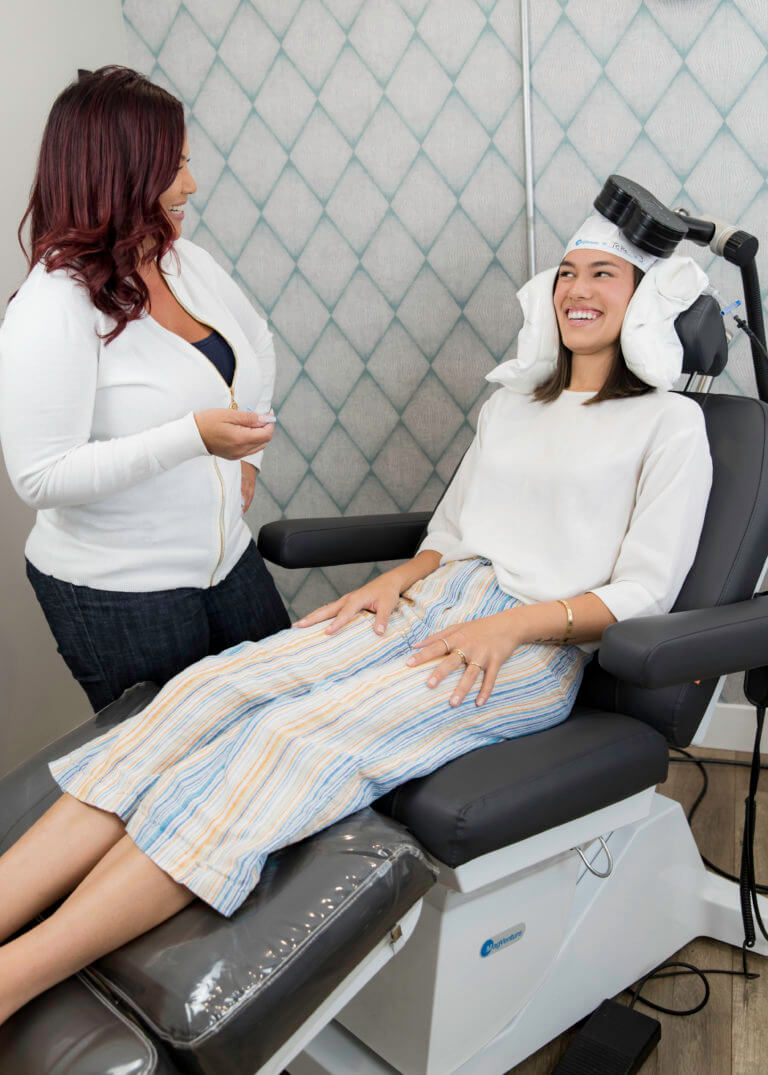
For those diagnosed with OCD, specific areas of the brain are known to work differently. Stimulating these areas can improve the brain’s ability to regulate the symptoms of OCD.
Unlike medications, which affect the entire body as they pass through the blood-brain barrier, TMS therapy targets OCD at the source. That means you don’t have to put up with drug-related side effects, such as gastrointestinal problems, trouble sleeping, or weight gain. Unlike other forms of brain stimulation, TMS therapy is non-invasive and non-sedating. Treatment sessions take place in our private centers and you can drive yourself to and from treatment. You can go back to work or school right away.
Many of our patients have had tried multiple treatment methods before finding success with TMS.
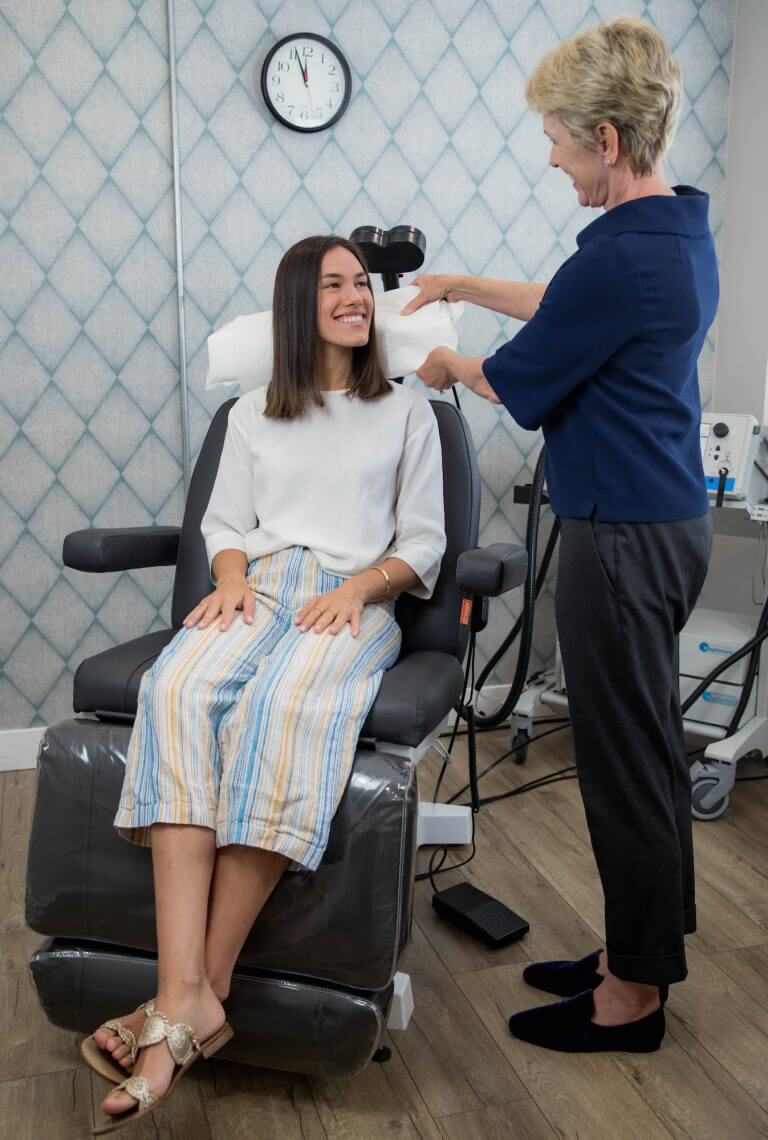
The brain is an electro-chemical organ. For the better part of medical history, the world has focused on chemical aspects of the brain with medications. TMS takes a different approach by targeting neurons, or brain cells, that communicate with each other in circuits using neurotransmitters.
For those diagnosed with OCD, specific neurocircuitry, or areas of the brain are known to function differently. With the use of gentle magnetic pulses, TMS stimulates these areas to reduce OCD symptoms.
How is OCD Treated with TMS?
Transcranial Magnetic Stimulation (TMS) uses magnetic pulses to stimulate a specific area in the brain in order to improve the OCD symptoms. TMS is a well-established, FDA cleared option that has been available throughout the US at numerous psychiatric practices and hospitals. Although medications and behavioral therapies are treatment options for OCD, over 50% of patients still experience OCD symptoms after undergoing these conventional treatments. Transcranial magnetic stimulation is a novel and effective approach to symptom relief for those with OCD.
TMS is indicated and FDA-cleared for the treatment of OCD. When treating patients with OCD, TMS pulses are directed towards specific areas of the brain which have been associated with OCD symptoms. During TMS treatment, patients recline in a treatment chair and remain awake and alert. A TMS magnet is positioned over the patient’s head to deliver gentle pulses to specific areas of the brain. Patients report that the pulses feel like taps on the scalp. Each treatment session lasts about 30 minutes, after which patients can immediately return back to their daily routines.
Clinical studies have demonstrated that repetitive magnetic stimulation over the prefrontal cortex is safe and effective treatment for OCD. Plus, TMS is well tolerated. Sometimes patients experience mild scalp discomfort or mild headache during treatment. Most of our patients say that the pulses take some getting used to, but they aren’t usually painful. If you’re feeling discomfort, let us know and we can make adjustments.
If you are interested in TMS therapy for yourself or a loved one suffering with OCD, call Neuro Wellness Spa on 1-877-847-3984 or go to our Contact Us page.
What is OCD?
Obsessive Compulsive Disorder (OCD) is a mental illness that can have debilitating symptoms that prevent sufferers from functioning normally. While OCD has traditionally been categorized as an anxiety disorder, recently the Diagnostic and Statistical Manual of Mental Disorders, fifth Edition (DSM-5) created an entirely separate mental disorder category for OCD and OCD-related illnesses. Although OCD is a is chronic condition, there are a variety of treatments that have been found to be successful in alleviating OCD symptoms and underlying issues.
OCD is a disorder that causes the sufferer to have obsessive and unwanted thoughts and/or repetitive behaviors. Obsessive thoughts may cause the person to feel a great amount of anxiety or cause them to develop compulsions. Compulsions are the behaviors which people with OCD may perform to alleviate their anxiety-inducing thoughts. These behaviors often impede a person’s ability to live their everyday life – for instance, they might obsessively wash their hands or perform other rituals to an extreme. The most common way to treat OCD is with cognitive behavioral therapy (CBT) and medications. However, these common treatments are not effective for everyone. TMS therapy is a safe and effective option for those suffering with OCD symptoms even when conventional treatments have not provided symptom relief.
Signs and Symptoms of OCD
Obsessive Compulsive Disorder (OCD) affects people of all ages and all walks of life, including about 1 in 40 adults in the United States. OCD is a mental health disorder in which a person has uncontrollable, reoccurring thoughts (obsessions) and/or behaviors (compulsions).
Obsessions are typically repetitive, intrusive, and sometimes irrational thoughts that cause intense panic or anxiety. Common obsessions may center around unwanted violent or sexual thoughts, losing control of one’s body, the fear of contamination or death, misplacing objects or the need for symmetry.
Compulsions are typically physical or mental behaviors that patients perform to alleviate or “fix” problems that their obsessions have created. Often, compulsions may present as everyday behaviors which are taken to an unhealthy extreme, like hand washing that goes well beyond a concern for cleanliness. Compulsions may also present as irrational impulses, like needing to count cracks in the sidewalk perfectly or else fearing for a family member’s life.
With OCD, obsessions and compulsions can cause a lot of distress, take up significant time and interfere with daily activities.
OCD Statistics
OCD can affect anyone regardless of one’s country, race, gender, or economic class. BeyondOCD, a foundation dedicated to raising awareness about OCD, reports that approximately 1 in 40 Americans will meet the DSM-5 criteria for an OCD diagnosis at one point in their lives. Current estimates suggest that 1 in 100 children in the U.S. have OCD.
While those figures may seem staggering, as many as 1 in 4 American adults will experience obsessions or compulsions at some point in their life.
For more information about the services we offer or whether TMS treatment is covered by your insurance provider, contact us today.





